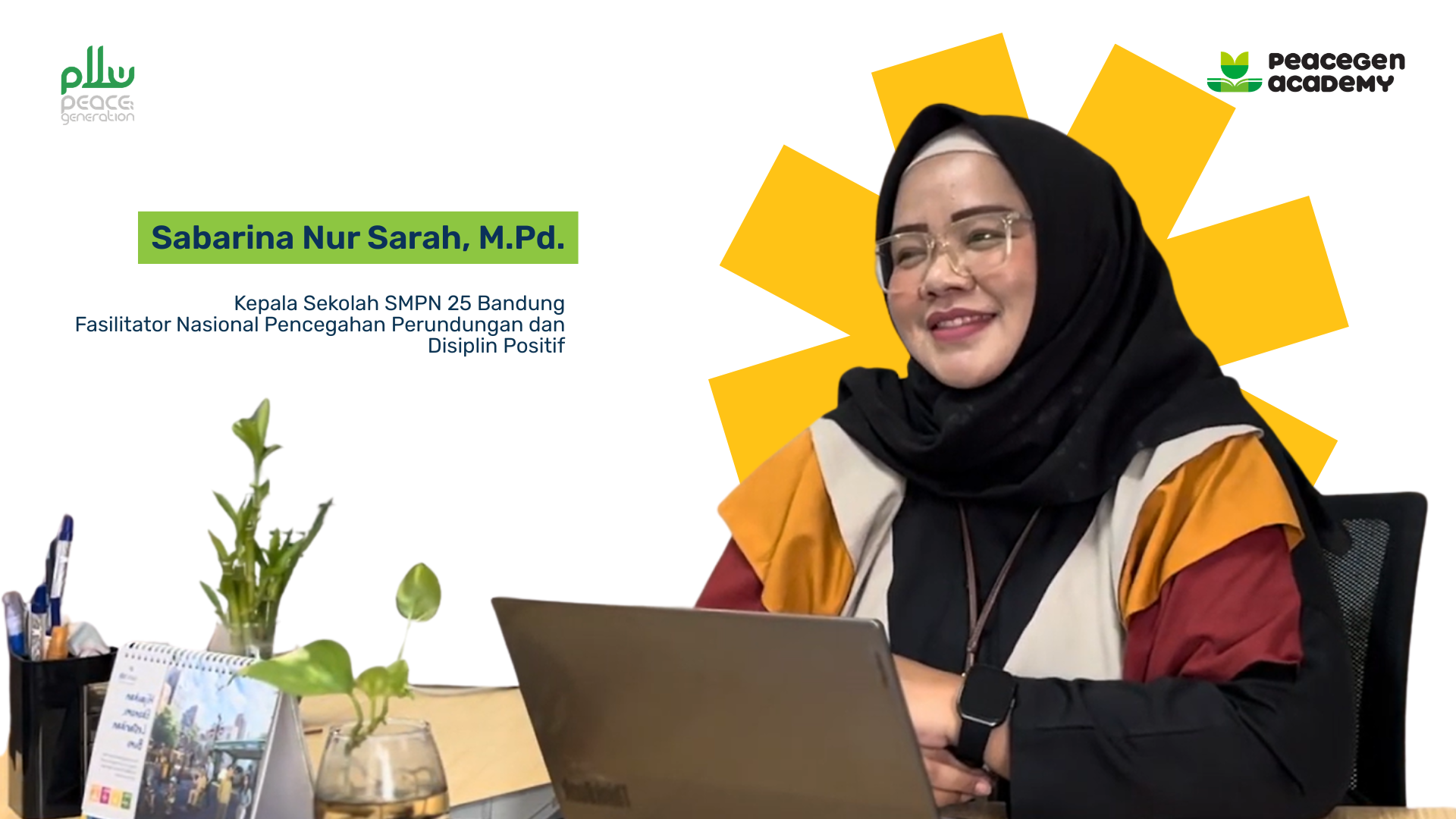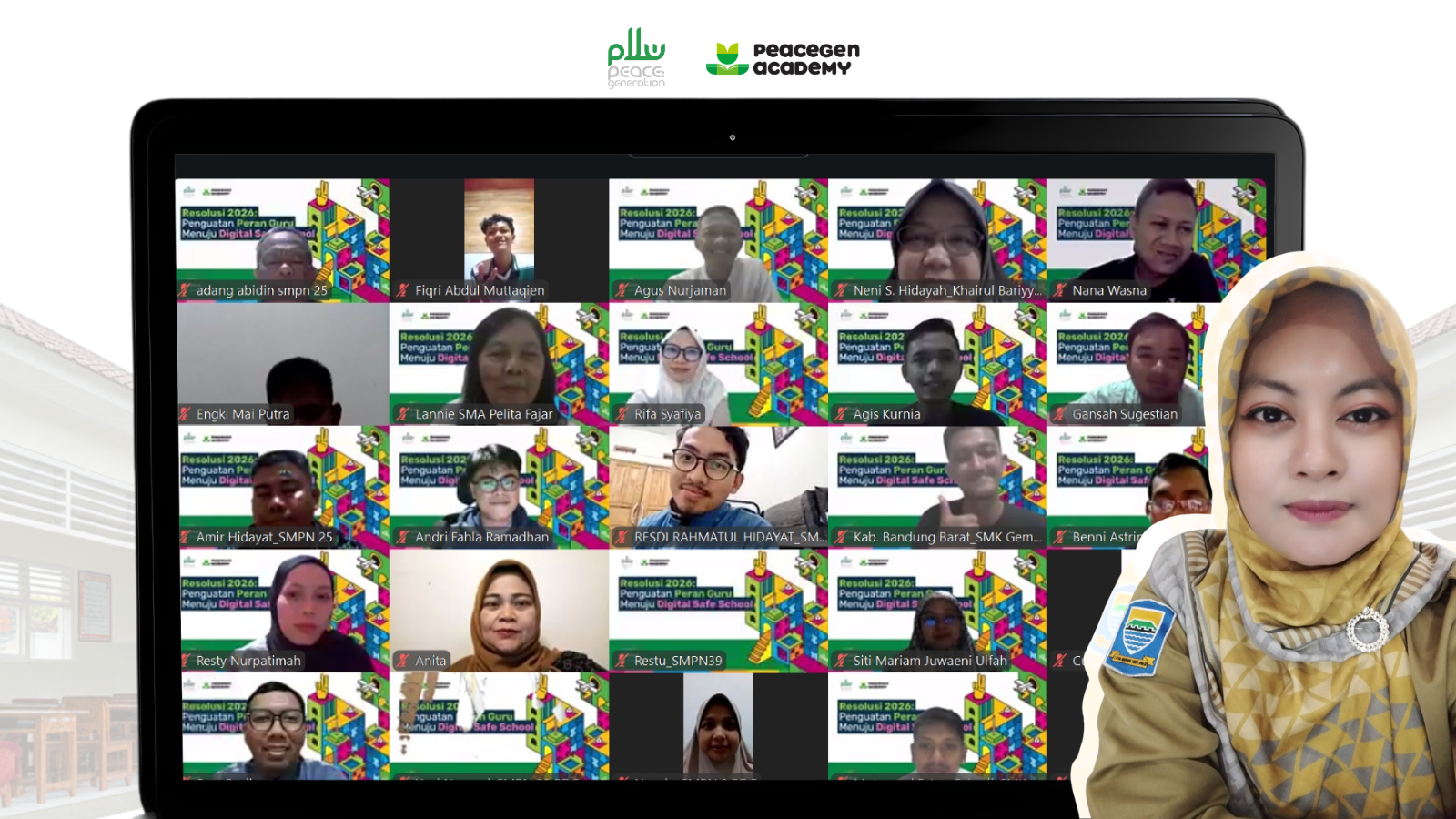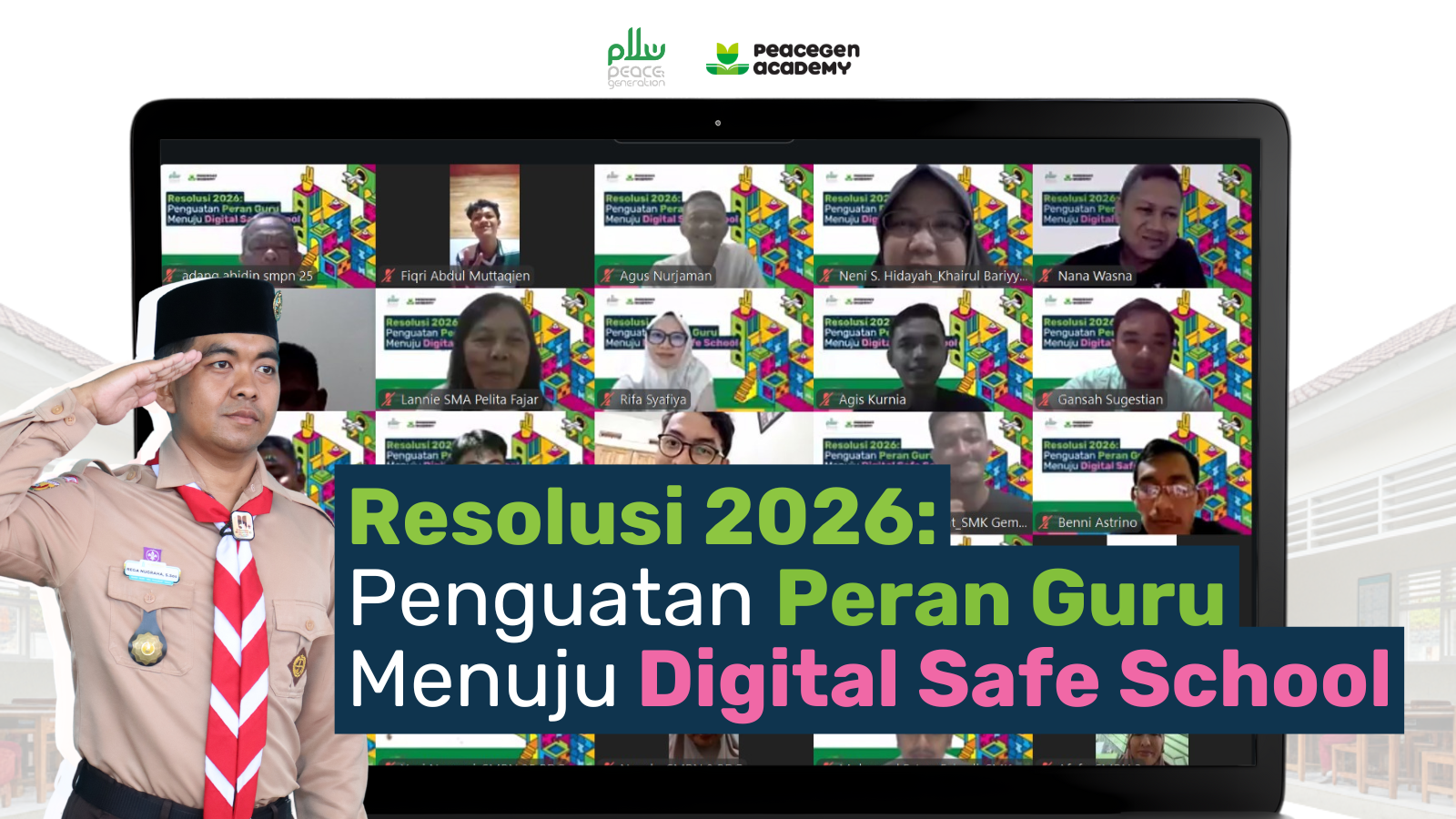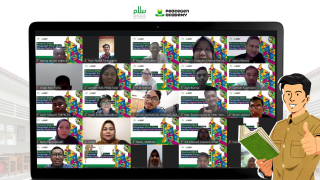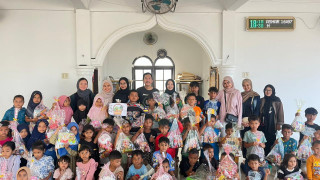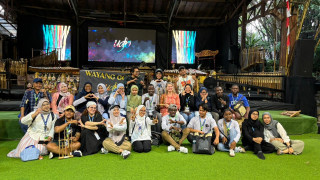From Knowing To Becoming A Responsible Moral In Asserting A Zero Waste Lifestyle

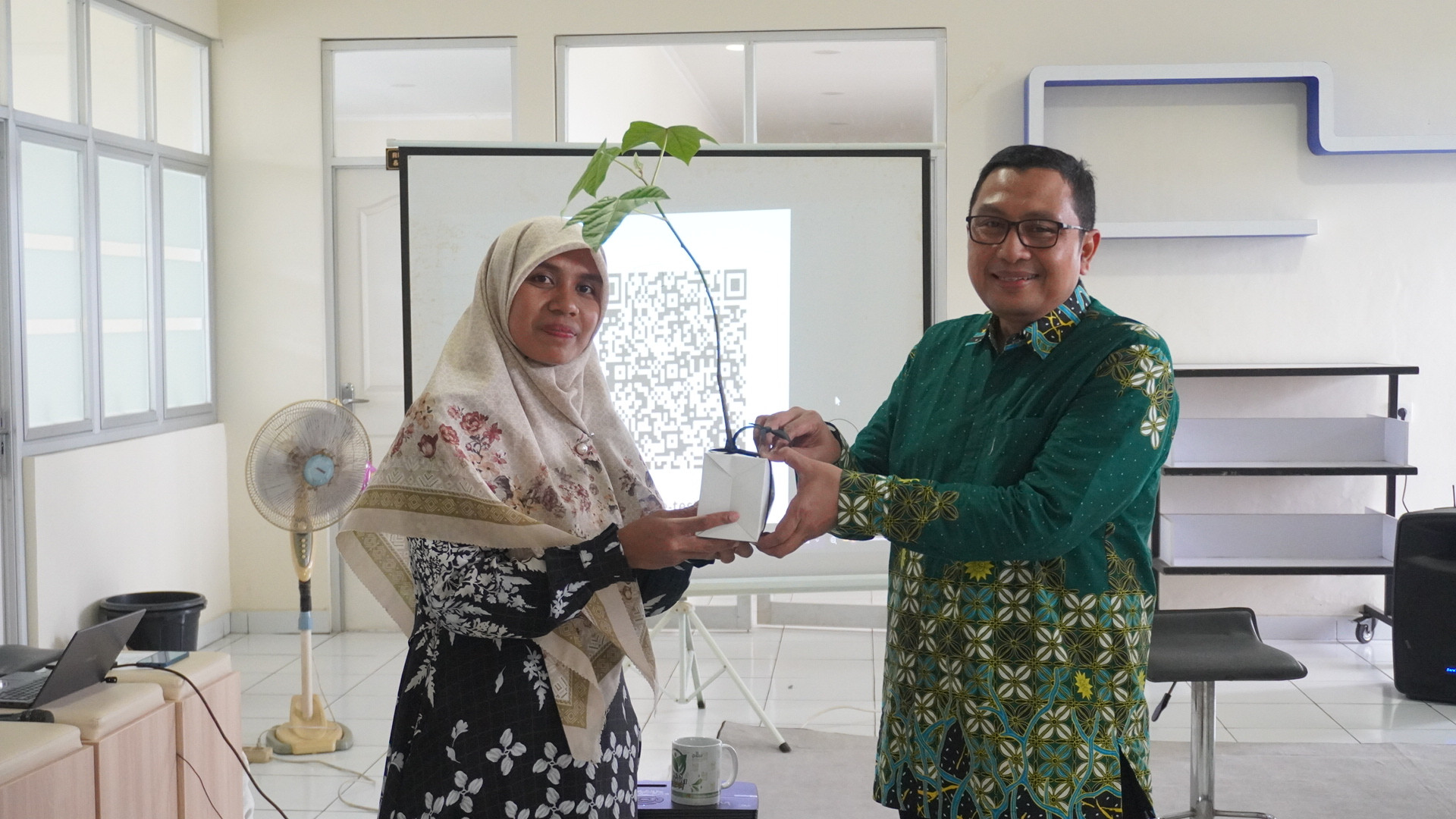
The Story of Change from Miftahul Jannah, a senior member of Nasyiatul Aisyiyah - National Training of Capacity-Building Religious Interfaith Engagement to Manage Environmental Risks participant from Mataram
Mifta is an active senior member of the Muhammadiyah Women's wing’s Nasyiatul Aisyiyah in Mataram, West Nusa Tenggara. She works alongside women and mothers in her local community to create Islamic social empowerment, one of which is creating religious activities that produce food. However, she realised that much food waste is generated locally.
“80-90% of waste in my community comes from the kitchen. As a member of Nasyiatul Aisyiyah, I care about women's role in decreasing the amount of food waste.”
Because of food waste, she started caring about zero-waste lifestyle principles, which led her to join the National Training of Capacity-Building Religious Interfaith Engagement to Manage Environmental Risks. She believes that as a member of one of Indonesia's most prominent religious organisations, she can significantly impact the mainstreaming of a zero-waste lifestyle and principles in Mataram.
Baca juga: Ms. Sarah's Efforts to Build Peace Among Multicultural Students with PeaceGen
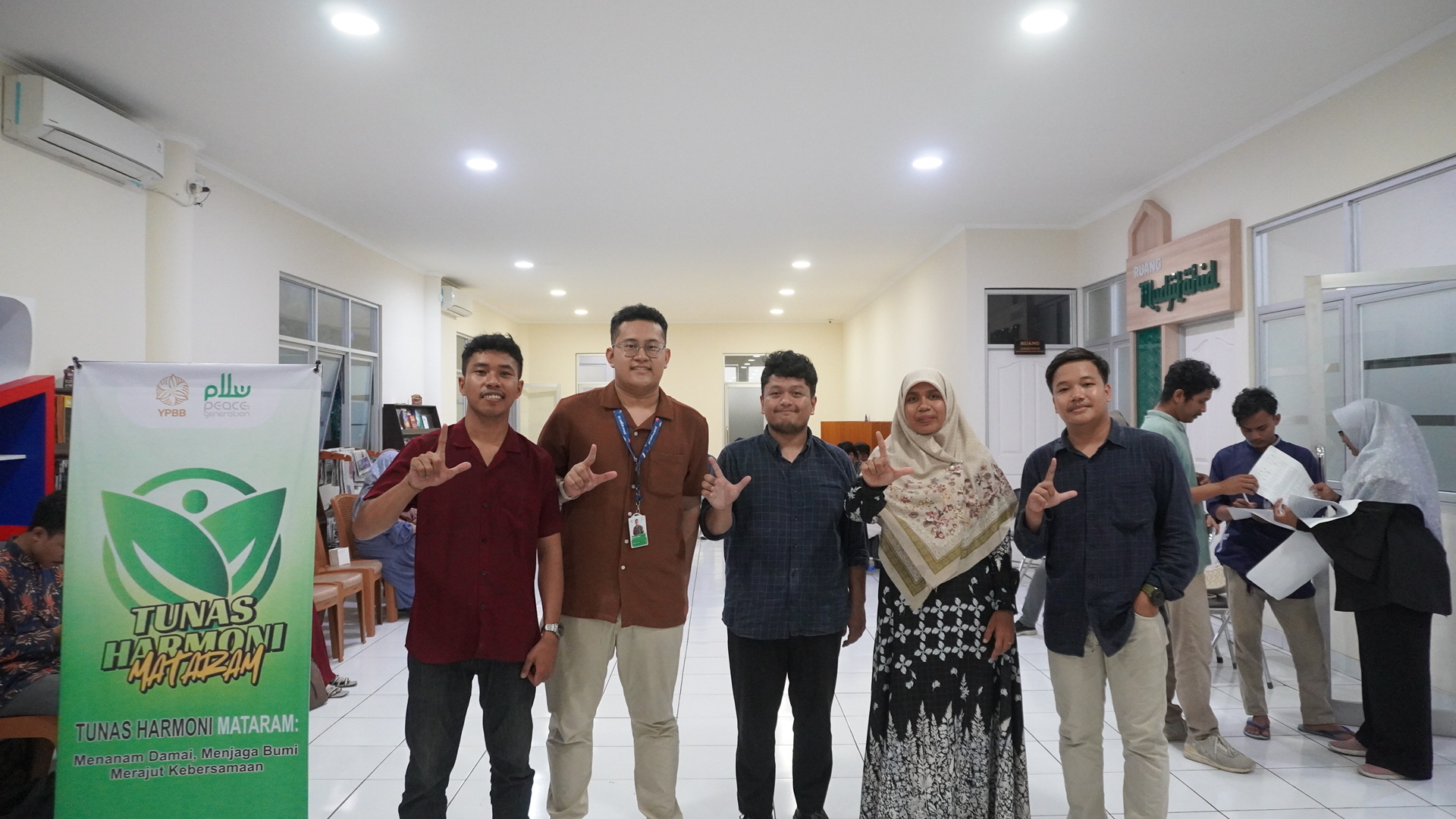
However, she understands that this is not a one-man mission. That is why we asked about her perspective on zero-waste principles in her religion and others. She believes Islam is against extravagant nature, which aligns with a zero-waste lifestyle by consuming resources responsibly. She argues that people harm nature by being extravagant and irresponsible in generating waste. Moreover, she also knows that other faiths, such as Buddhism, have similar views regarding human responsibility not to harm nature, called ahimsa.
If there is a similarity between different faiths when talking about how to manage waste and environmental risks, we then asked her opinions about the opportunity of interfaith collaboration for a zero-waste lifestyle. Mifta decisively says yes, and there must be one done in Mataram. This is where PeaceGen comes into play.
When she was duly selected for the national training, she met her other counterparts, not only from different religious or faith-based organisations, but also from different generations as well, when we bring Raka and Reza from Peradah Indonesia (a Hindu youth union) and Mulia NTB (an interfaith youth movement) to learn and collaborate with in the three-day national training in Bandung.
Mifta’s views on Islam and knowledge of other faiths about waste also influence her thinking about her community. She knows that her organisation generates kitchen waste, where many of her colleagues generate way more food and single-use plastics than they need. Based on her experience, she initiated the local training event to teach more about Mataram Waste Emergency, 3R (Reuse, Reduce, and Recycle) Training and Household-Based Waste Processing with the help of local scholars and a zero-waste influencer.
Mifta and her interfaith counterpart manage to optimise the use of materials and methods used by PeaceGen in the national training to make their local training more interactive and engaging. In addition, she also implements zero-waste event management by not using single-use plastics and instructs her local participants to bring food containers and drinking glasses.
Furthermore, Mifta’s change in viewing the waste management issue in Mataram is also being internalised. Not only do she and her counterparts help others care more about a zero-waste lifestyle, but she has also started to do more to promote it by making compost in her house. Also, she initiated local free food distribution for Ramadan’s Iftar event using banana leaves as packaging instead of single-use plastics.
“The most significant change within me is that I’ve become more conscious and guilty if I produce waste. Now, personally, when I’m buying food that comes in plastic packaging, the guilt becomes bigger after I’m being trained (by PeaceGen). Because now I have a moral responsibility to be more cautious. That is why, when my colleagues asked about packaging, as a responsible member of the organisation, I suggested just using banana leaves instead. Since then, our Bagi-Bagi Takjil (giving free snacks to break fast) event uses a more environmentally friendly packaging.”
Baca juga: Teacher’s Story: How Rega Nugraha Prevents Digital Threats in Islamic Boarding Schools
Besides the changes in the environment perspective within her, Mifta is also keen to collaborate more with interfaith members in Mataram. She views that there is no problem in working alongside people of different faiths because there is a shared vision and perspective when talking about how to manage environmental risks. Not only about the shared vision, Mifta believes that everyone, no matter what faith they belong to, should work together to mainstream zero-waste lifestyle principles.
“One of the most critical aspects is collaboration in the field of the environment. After all, this is not the responsibility of one religion but all religions, and all religions have the reality of how important each religion's teachings are. Inform that the belief asks mankind to care and be responsible for the environment.”
